Essentially, training pets is all about teaching them to respond to specific conditions or stimuli. It’s certainly no easy feat, as it entails a lot of effort and patience. Pretty much like humans, it requires repetition for animals to get accustomed to a certain behavior or skill. However, there are also instances where they develop a habit simply because it produces a favorable result.
Curious about this phenomenon, Reddit user shoonpo took to the subreddit AskReddit to ask other fur parents about skills or habits that they have “accidentally conditioned” their animals to do. From knowing when it’s bedtime to killing spiders and more, it’s amazing to see how simple interactions affect animals’ behavior.

As of writing, the post has already racked up over 63K upvotes and 13K comments. This only goes to show that it’s a common phenomenon among animals. What’s more is that it doesn’t only occur in dogs or cats, as many would probably assume. In fact, even people who own birds, guinea pigs and even tortoises have their own amusing stories to tell too!
“I talk to myself constantly so my cat thinks it’s normal to walk around making chatty noises all the time. If he’s awake, he’s talking. I think it’s adorable but it drives my husband nuts, which has resulted in my husband yelling at him a lot (don’t worry, the cat doesn’t get upset). Now the cat thinks that’s just how my husband talks, so whenever he sees him he yells at him really loudly in order to imitate him. My husband will walk in the room and my cat will stop whatever he’s doing and just meow SO LOUDLY right in his face. It’s absolutely hilarious, dude got exactly what he deserved.”
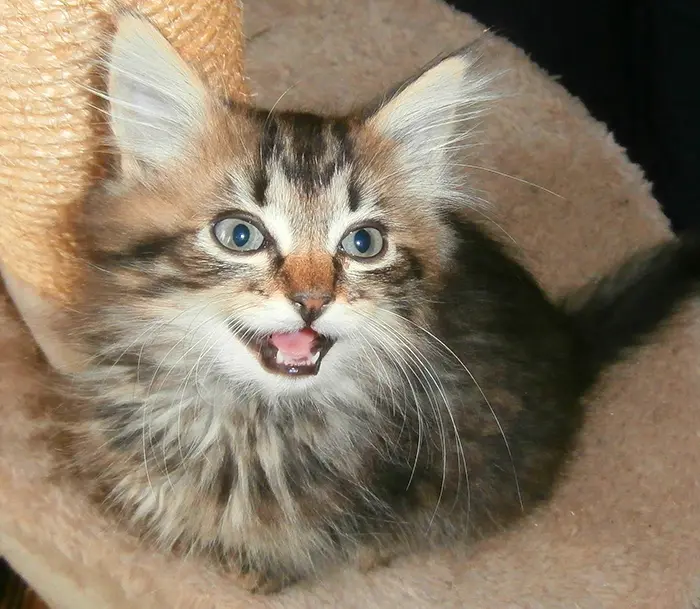
People online are sharing some of the most amusing things that they have “accidentally conditioned” their pets to do
“I take baths with my cat by letting her float in a plastic box, I keep the box in my closet. I only started doing this about a month ago, but now when I turn the bathwater on she runs to the closet and jumps in her box.”
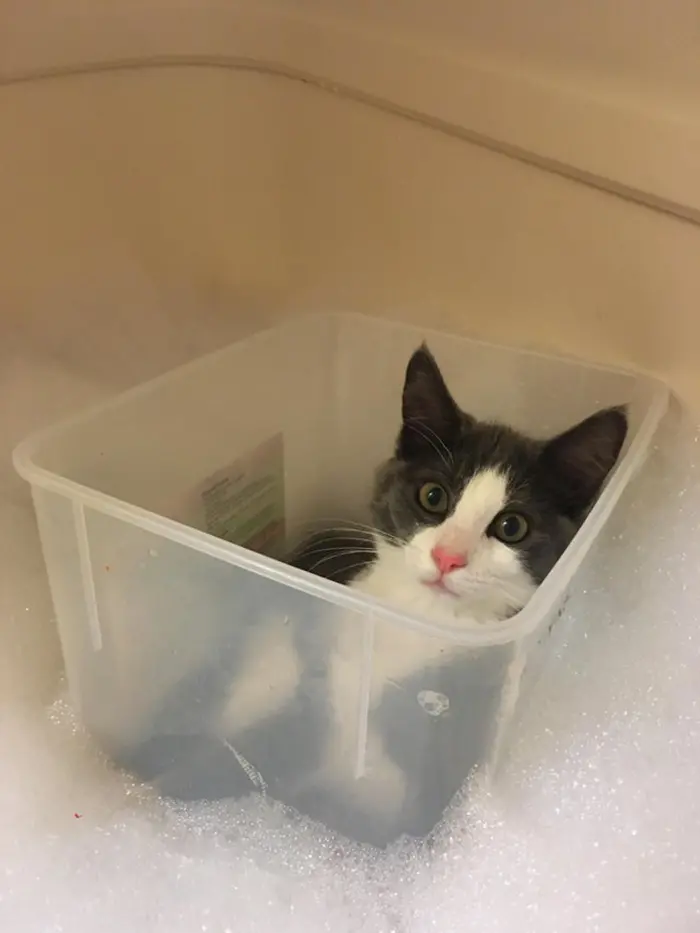
“Our cat had impacted anal glands for awhile. We had to bribe him with treats for him to let us look to make sure he was doing alright. Now when he wants a treat he comes up and sticks his butt in our face.”
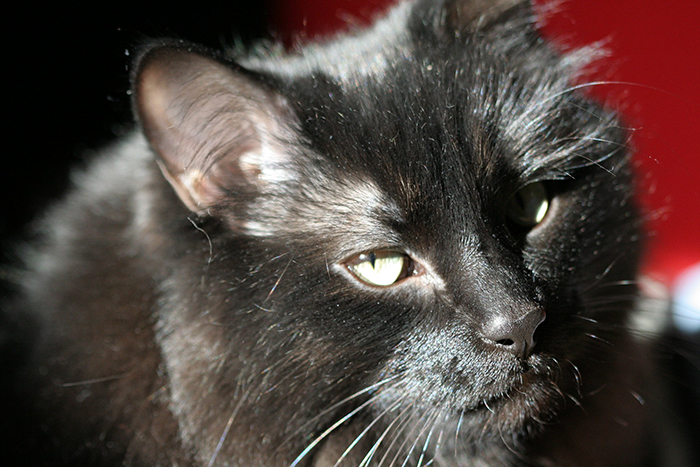
“I would playfully grab (not hard, really light) my dog’s snout whenever we’re playing. He somehow figured out it’s my favorite thing to do whenever he comes over to me. So now, every time he senses that I’m upset or sees that I’m crying, he would come up to me and gently put his snout in my hand.”
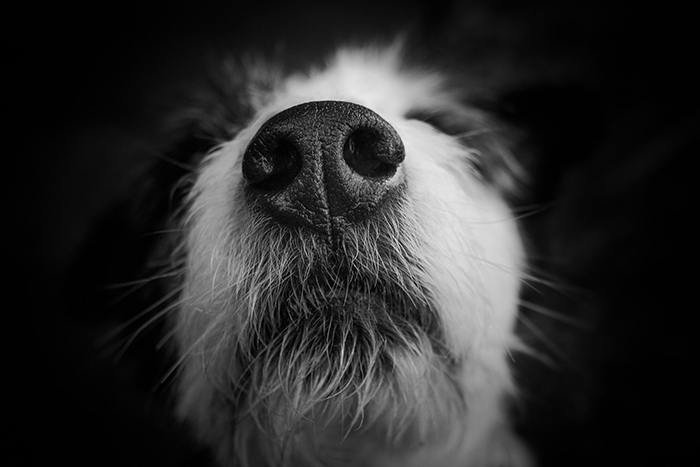
“When I was little I would constantly carry around one of my cats, Feist. Since my hands were full with her I would use one of her outstretched paws to turn on lights whenever we entered a room. Now the little bastard switches them on and off for fun.”
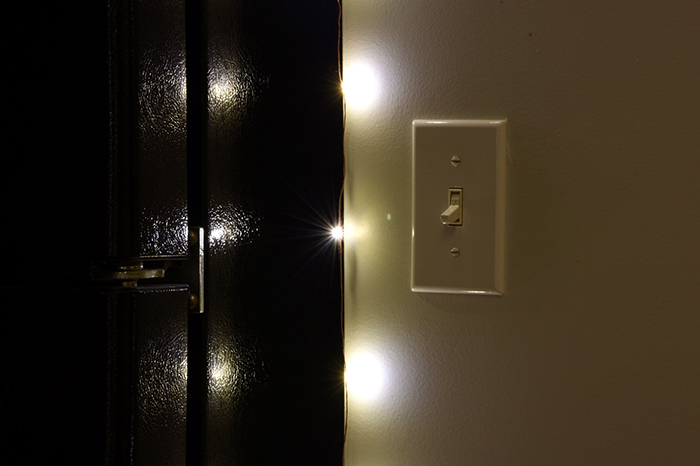
“Somewhere along the way, my dog learned ‘get your toy’ means to pick up his nearest toy. I didn’t purposely train him to do it, but it’s good for when he’s about to leave one of them outside and I want him to bring it in. If there’s no toy around and I say this he’ll grab the nearest soft thing, usually some piece of clothing lying around. One time he tried to pick up the cat.”
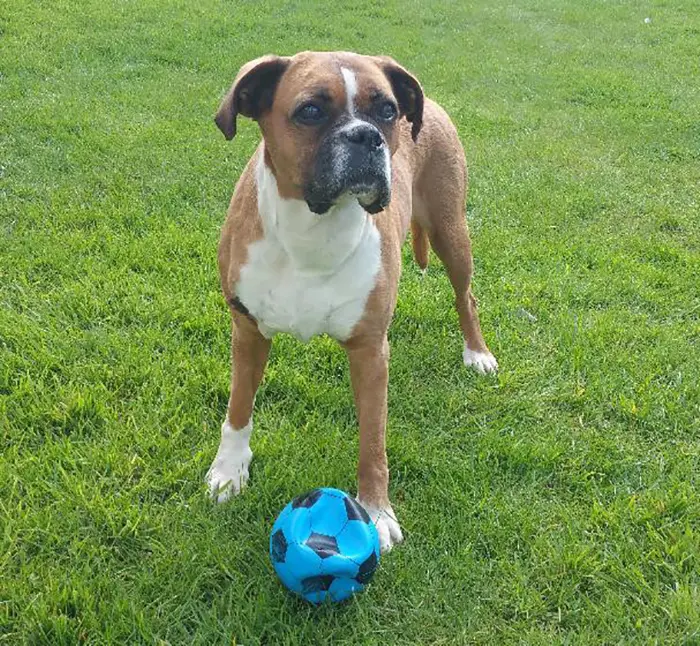
The development of these unusual skills is proof that even the simplest interactions with our animals can affect their behavior in big ways
“My dad has our pets trained pretty well. Since our Labradoodle was a puppy, he would tell him: ‘It’s time for all the puppies in all the world to go to bed.’ His bedtime has always been 9 pm. Now we just say ‘all the puppies’ and he goes downstairs and into his kennel. If we forget, he puts himself to bed. My dad works from home and will take a break to let the animals out into the backyard. He says ‘time for recess!’ And they all come running, cats included! Last but not least, when my dad plays the piano, the dog sits next to him and ‘sings’. It’s the world’s most obnoxious bark/yowl combo. My dad has a way with animals.”

“I picked my kitten up a few times to kill some spiders up high for me. So now whenever I pick her up she looks up at the ceiling and looks for spiders.”
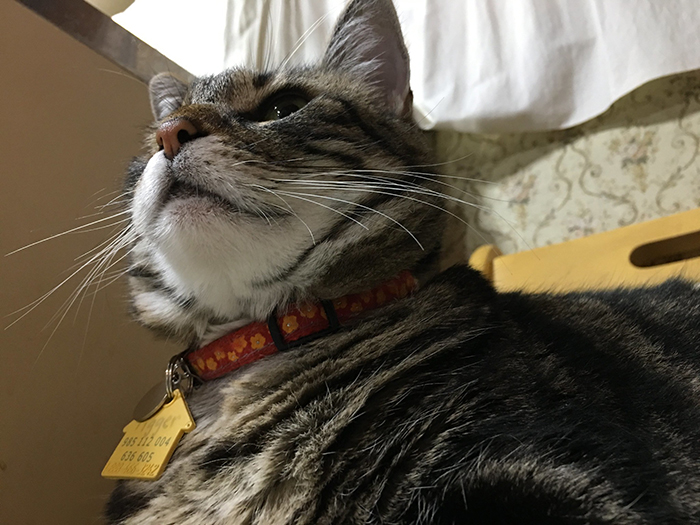
“My cat meows twice (like ‘bless you’) when I sneeze and I say ‘thank you’ back. She started doing that on her own. I stopped saying thank you a few times and now she won’t stop yelling at me until she knows I’m okay.”
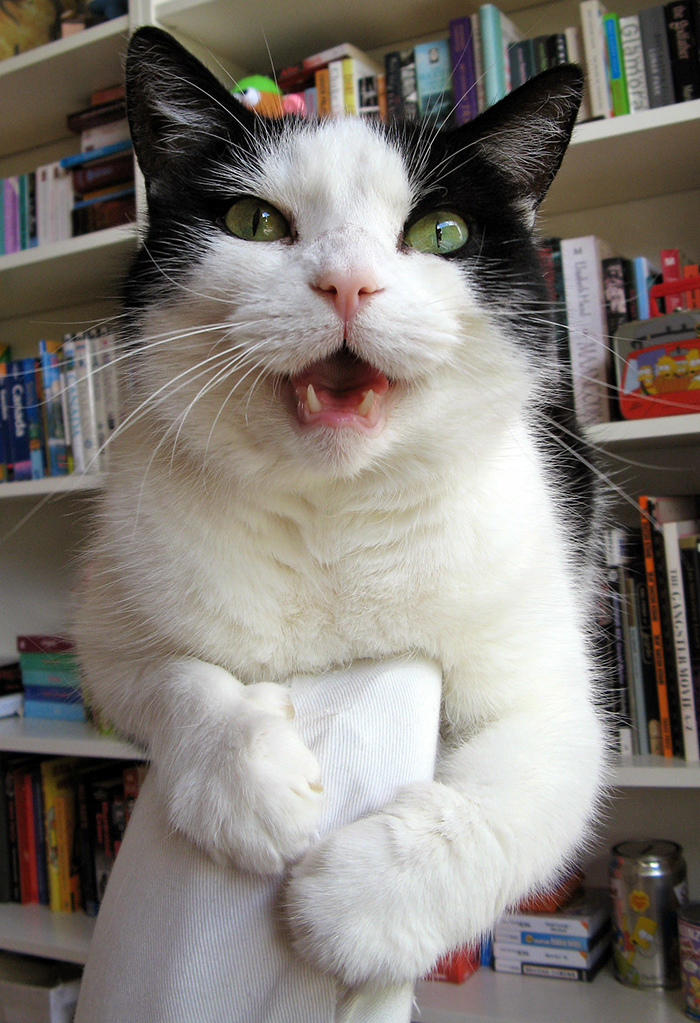
Apparently, we’re unconsciously training our pets every time we interact with them
According to Samantha Bell, a cat behavior expert for Best Friends Animal Society, “The reason for this unintentional training is operant conditioning.” This phenomenon occurs when a “behavior leads to a reward which leads to a repeat of the behavior.” She also pointed out that animals motivated by rewards are relatively easier to train, citing her experience as a cat owner herself.
“Their species doesn’t matter as much as you’d think when it comes to training! The more they want treats or pets or attention or a certain toy, the easier they are to train. My two cats that are obsessed with treats are so easy to train that I can teach them a new behavior in a couple of 5-minute sessions. But my cat that is ‘meh’ about treats takes more time, work, and patience.”
“My cats love blanket caves or anything along those lines. One day I was wearing a pretty long dress and as a joke, I covered one of my cats with my skirt. She sat right down and started purring like a motor. Now, anytime I have a long skirt on and crouch down to their level, she will dash under my skirt, make herself comfortable, and start purring. I worry about the day that she comes across another person in a skirt and dashes in like some pervy creep.”
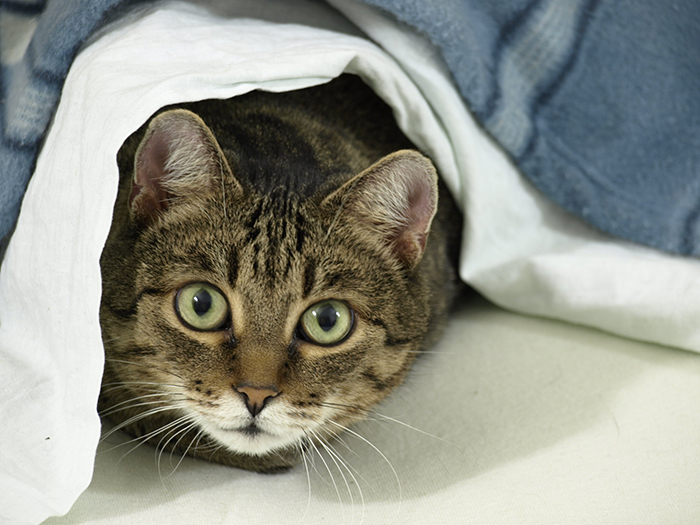
“My niece loves to FaceTime my mom to talk to her dog. When the dog was a puppy, my mom used to pull her onto her lap when she would get FaceTimed. Now the dog is 80 lbs and will jump in your lap if your phone or tablet starts making the default FaceTime ring.”
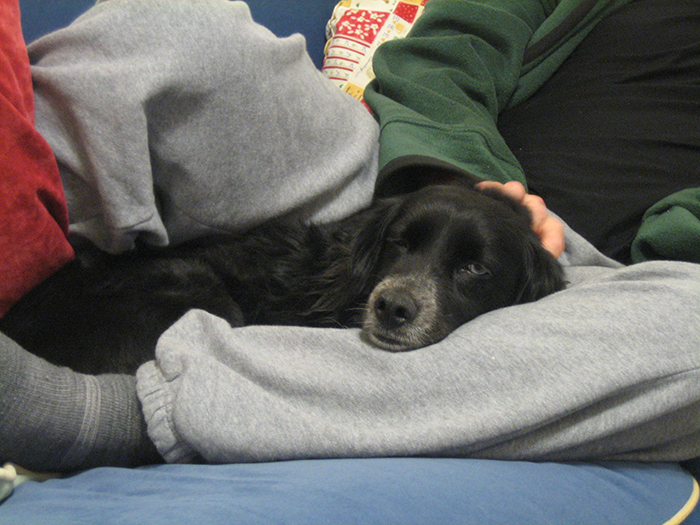
This phenomenon is known as operant conditioning, which means that pets tend to repeat a behavior that yields them a favorable outcome or reward
“Somehow we taught our dog the concept of trading. When we eat something she really wants she will go get one of her bones or toys, and if we carelessly take them from her she will casually try to take what we are eating as if we shook on an exchange.”
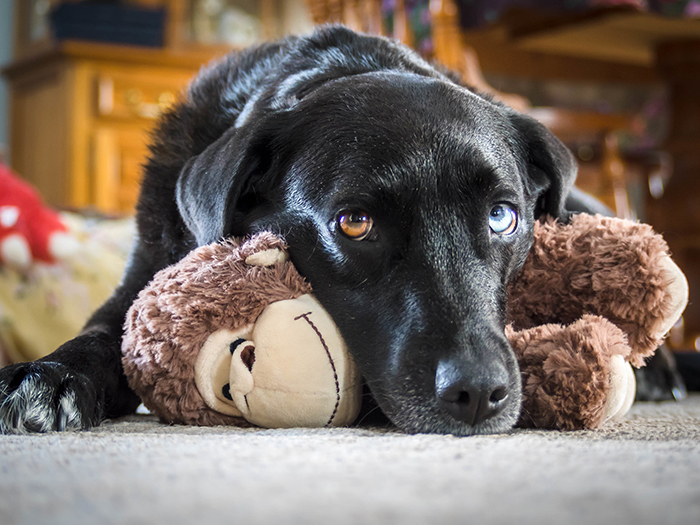
“My ex had a parakeet with the most personality I have ever met in a bird. The bird used to mimic the sound that ‘beeboop’ sound that an android made when you plug it in the charger and knew that meant it was time for bed. So, whenever the bird was tired, it would make that noise, because that meant it was time to sleep. It mimicked it so perfectly that I found myself checking my phone whenever it was naptime for the birdy. I miss you Pistachio!”

“Bring me dirty laundry. One day my cat brought me a sock and it was so cute so I petted him and praised him. That started a cycle of it and now he’s constantly bringing dirty laundry to me.”
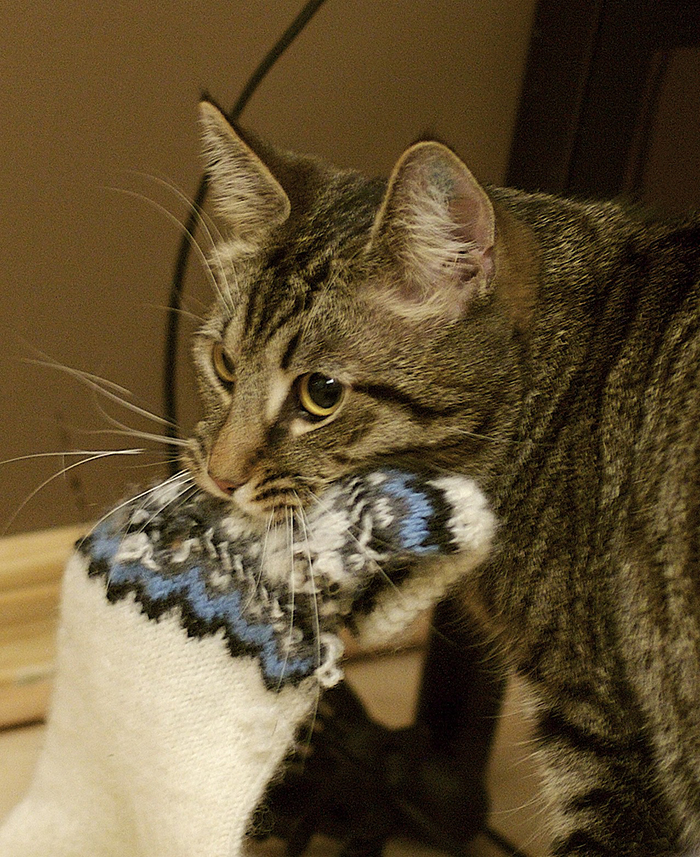
“I conditioned my cats to use the scratching post with treats and pets and lots of ‘good boy, good boy.’ For the last 7 years, whenever I have to tell my one cat to stop chewing on something or anything like that, he goes to that post and scratches furiously looking at me like ‘but I’m a good boy!!'”
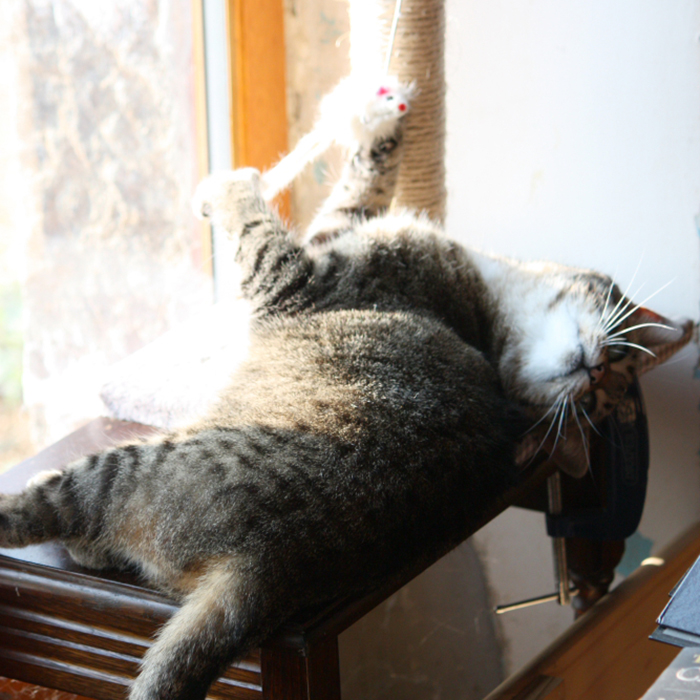
Apparently, animals, regardless of their species, that are highly motivated by rewards are relatively easier to train
“My dog knew he would always get some ice to chew when I went to the fridge so any time he heard the ice machine on the fridge start he would come running in. Once he became deaf he would feel the vibrations in the floor from it and knew it was ice time!”
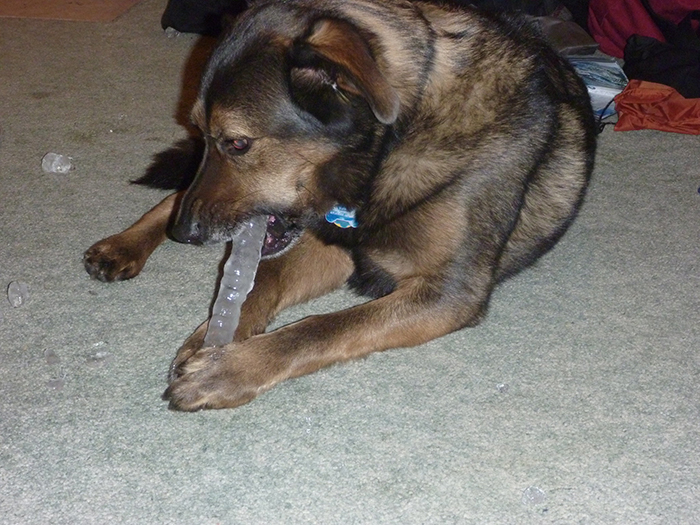
“My wife and I have pretty set sleep schedules during the week. If we stay up later on the weekend or w/e, our dog gets VERY huffy/offended and will sigh passive-aggressively at us until we go upstairs to bed. Oh, and if one of his bowls is empty he licks it (also passive-aggressively) and then makes direct eye contact.”
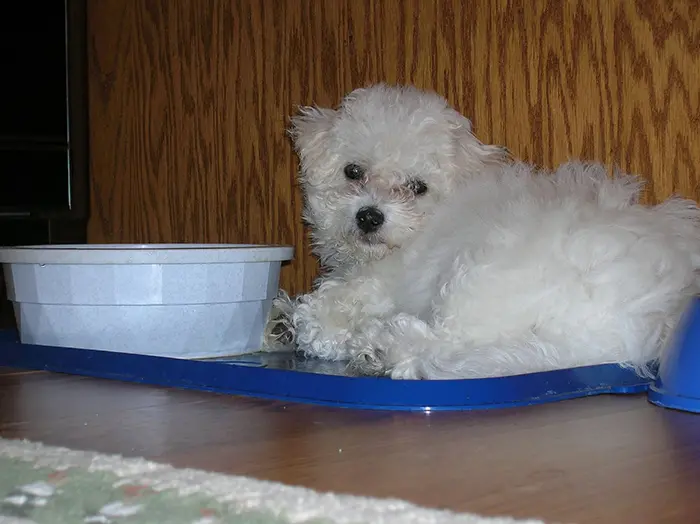
“My cat will open the tray to my Xbox when he thinks I’ve been playing too long. Even if I just started.”
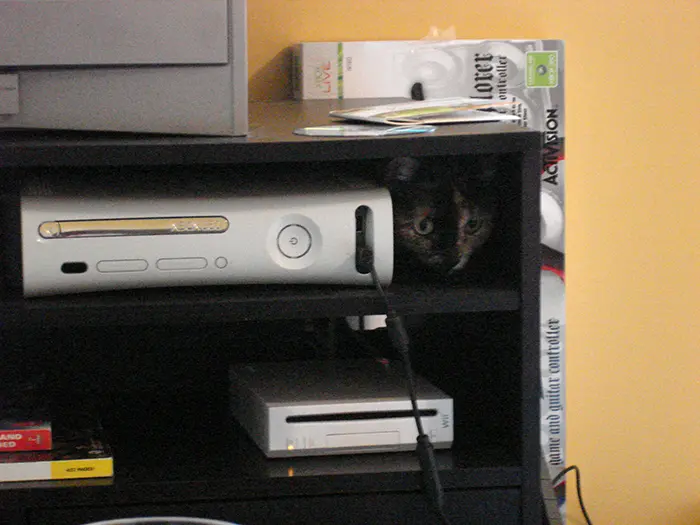
Cat behavior expert Samantha Bell recommends rewarding favorable behavior of our pets and ignoring those that are not favorable
“One time, my cat spotted a spider on my wall, since he was staring so obviously I was able to notice too. Grateful, I gave him treats and cuddles. He did it again a week later, same thing. Then one time he looks around frantically and I jump up to go check but I don’t see a spider. He looks at me expectantly. After a few times like this, I realized he learned that looking around intensely at stuff means treats, love, and attention.
It’s now been 4 years and he will still look at me then pointedly look around the apartment, then back at me, expecting a reward. Has it resulted in him spotting the occasional bug? Yes, especially since over the years I’ve learned the slight difference between his real expression and the fake ‘I want treats’ one. Still, even if I know it’s all a lie, it throws me off and sometimes I give in and look anyway. Maybe I’m imagining it but he always looks so satisfied afterward, the fluffy jerk.”

The expert also noted to keep an eye out for pets that seem to be unmotivated by any stimuli.
“If you have a pet that does not seem to get excited about anything: attention, treats, food, pets, toys, you should have them checked out by your vet to make sure they’re feeling ok.”
“My tortoise stands on my foot when he is hungry.”
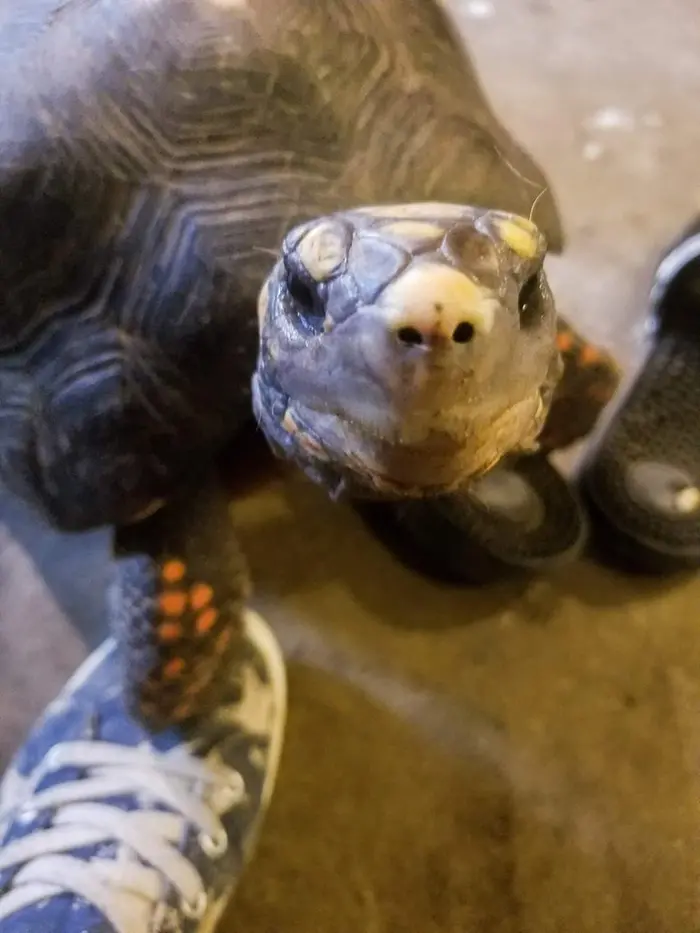
She also advises against using negative reinforcements like punishing pets to correct unwanted behavior, as this can only cause stress and distrust among animals
“My dogs know the sound of the drawer the cheese is kept in the fridge. They could be asleep in a completely different area, but if you open the cheese drawer they come running and sit like good boys for their cheese. They are herding dogs and will also herd the cat away if she won’t stop meowing at me when I’m busy or if she tries to scratch anything.”
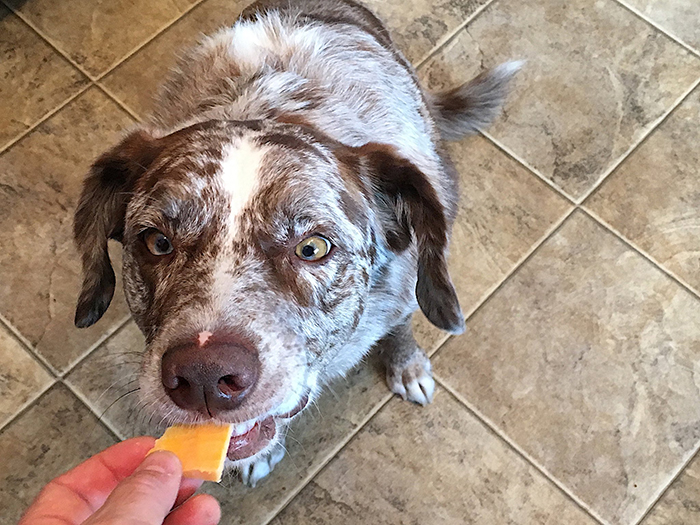
“Get wet food at 4:00 am every day. I wake up early during the week and feed him wet food right away. Of course, he doesn’t care that it’s the weekend. His internal alarm clock is down to minute with precision. And because he’s a cat, and an a**hole, if we don’t get up and get his food, he howls loudly through the house, opens shutters, walks on our faces, nudges our noses with his nose… he’s so relentless it’s not even funny. But we love him.”
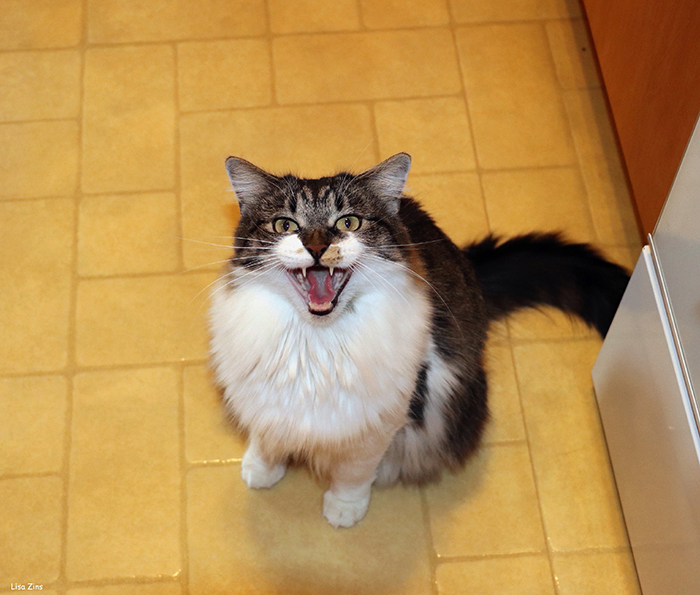
“After my roomate got a cat, my dog answers to ‘Kitty Kitty Kitty’ cause he wants love and/or treats.”
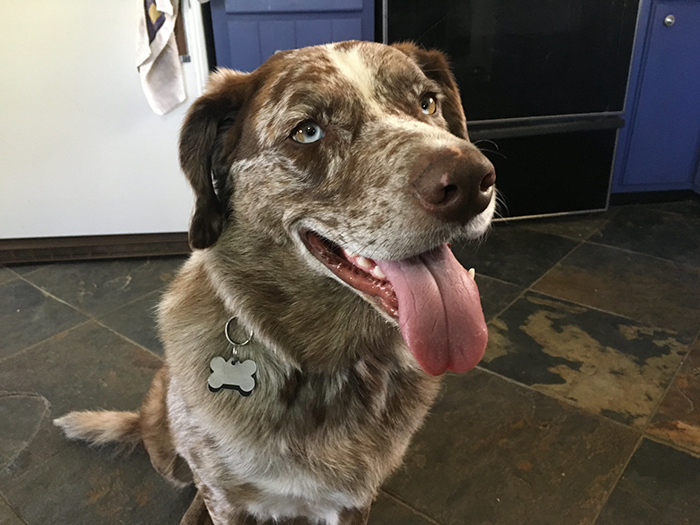
“Every time I open the veggies draw in the fridge my guinea pigs begin to squeal with excitement, thinking it is food time even if I just fed them…”
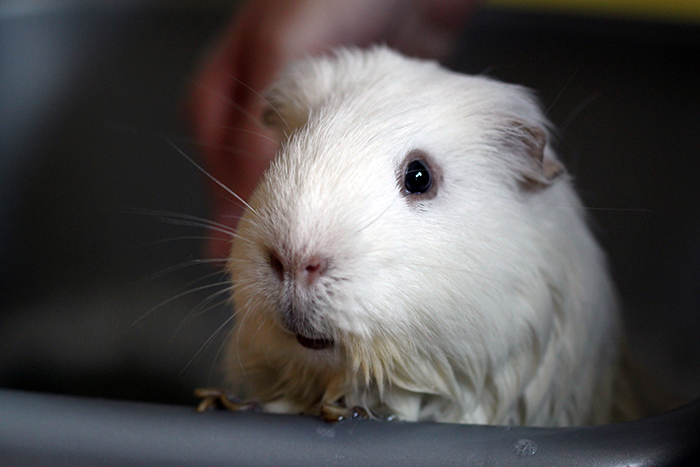
“Every morning when I wake up I rub my dog’s belly. Now whenever I say good morning she will lay on her back for belly scratches.”
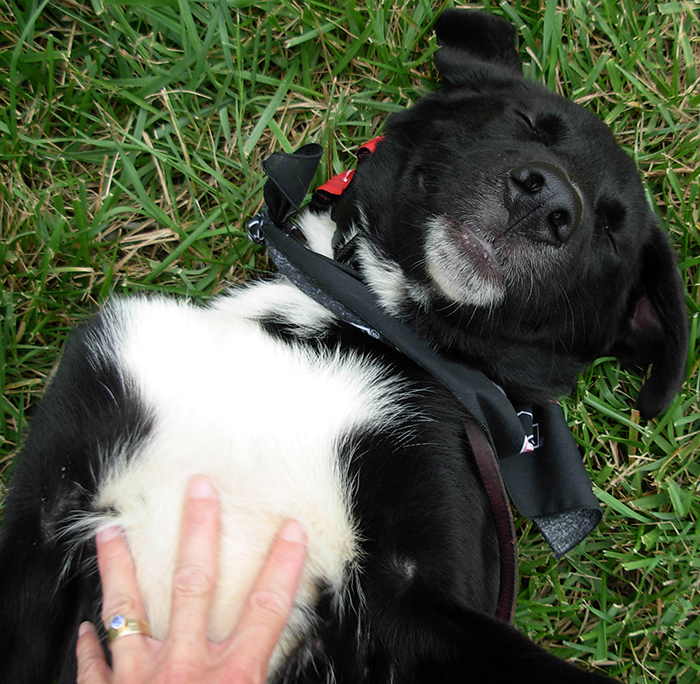
What’s worse is that applying negative reinforcement can even result in the development of more unwanted behavior
“My cat knows my bathroom schedule. When I have to pee after getting home from work, she’ll dart into the bathroom and wait for me to put her on the counter. Then I turn on the tap and she drinks the water. I have no memory of how this started.”
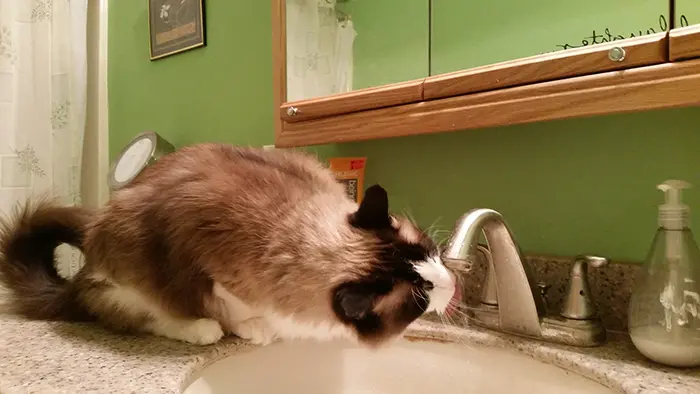
“One of my cats has a favorite toy that he brings me sometimes, and when he does I praise him for his catch. Now either I’ve trained him into thinking he has to bring it to me to receive affection or he’s trained me into recognizing when it’s OK to give him affection. Or a little bit of both and it’s just a little nice communication tool.”
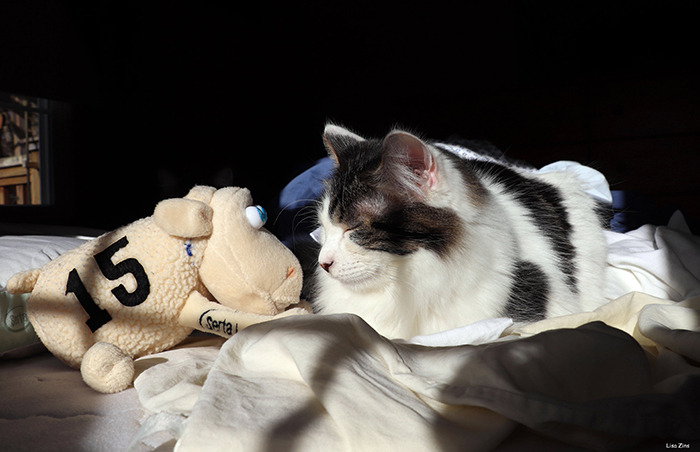
Apparently, this type of training doesn’t only apply to dogs or cats. In fact, even owners of guinea pigs, birds and even tortoises have their fair share of amusing stories too!
“1) My one dog sleeps under a blanket. I know he pretty much only gets a decent sleep that way, so every time he’s laying down I cover him with one.
So whenever he wants to have a nap, or it’s time to go to sleep at night, he jumps up onto the couch, or bed, or really wherever I am, and just sits there staring at me, until I grab a blanket and drape it over top of him – to which he then lays down and falls asleep.
The funny part is that he’ll often sit there in that position waiting for minutes on end. Sometimes he’s not even facing me when he does it which is the funniest. He’ll get up on the bed, put his a** in my face, sit, and just wait. He knows he doesn’t even feign loving me to get what he wants, he just knows it’s going to happen so why put up a facade? He’s become very entitled about it.
2) Whenever I bring my dogs in from a walk or from the backyard, I give them a treat, which I keep in the kitchen. So whenever we come in, they run to the kitchen and get in the sitting position (‘sit’ is always the first command in a string of commands that I use when giving them treats). If I forget, they’ll sit there for however long it takes for me to circle back around and give them a treat – sometimes this takes 5-10 minutes if I’m distracted, but they’ll just sit there waiting.
They have trained me well.”

So, as an owner, you might want to be mindful of the instances where you feel the urge to reward or reprimand your pet for their behavior
“My cat drinks out of a glass on my nightstand rather than a bowl. A couple of years ago, she was having some pretty serious dental issues (all fixed now), and was being reluctant to eat and drink. She had always wanted to drink out of the water cup I had for myself, and at that point, I just wanted her to drink anything, so I let her.
That was my mistake and now she refuses to drink out of a bowl on the ground, and will only drink out of cups. She has a permanent cup on my nightstand, to this day. Oh well, at least it’s easier for me to monitor her water intake.”
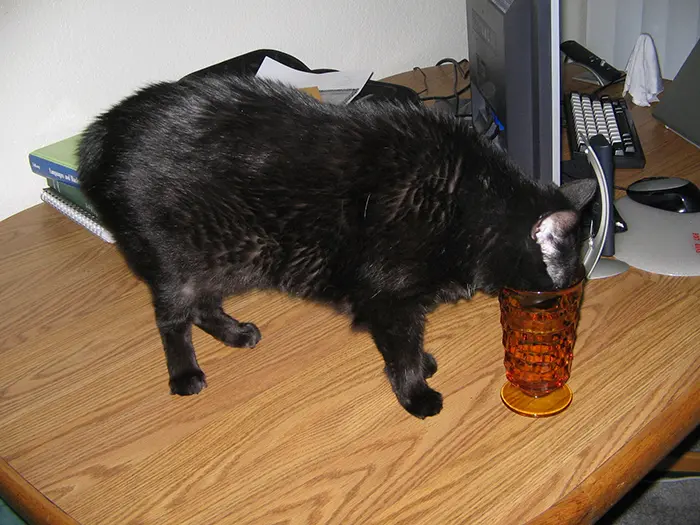
In a nutshell, Bell recommends rewarding the behavior that you want to see more of and ignoring the undesirable. She also advises against using punishment to correct unwanted behavior. Using negative reinforcement as such only causes stress and distrust among animals, which can even result in more unsatisfactory behavior.
“When my dog was a puppy, my dad used to give her the last bite of his breakfast sandwich every morning so she learned to sit next to whoever was at the head of the table eating at 8 am every morning. Sadly my father passed from brain cancer a few years ago so I feel bad to see her sit there and wait for the sandwich that isn’t coming.”

“My kitten will aggressively headbutt my face every night before bed, for top of head kisses before she goes to sleep.”

Otherwise, you might unintentionally condition them to do unusual skills just like these pet owners
“‘Stop eating your face.’ He has floppy jowls that sometimes get stuck in his teeth. I used to just casually say “dude stop eating your face” when it happened. On the occasions that he just happened to lick his teeth and spring it loose, I would give him a pat on the head and call him a good boy. Never any intentional training but now that he’s an old man he’s 100% responsive when I tell him. He’ll clear his teeth out and present himself for his congratulatory head pats.”
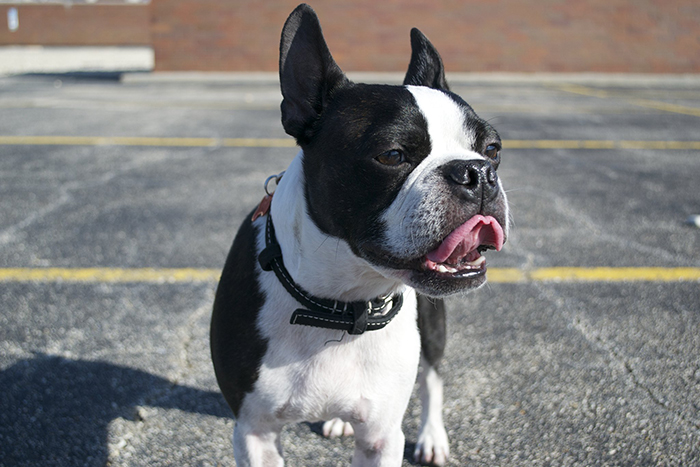
“The budgie had a broken leg in a little splint. He would climb to the roof of his cage with just his beak and good leg, then let go of his beak and hang by one leg then just stare at me. He knew I would stick my hand in and he could just fall off into my hand, he only did this when I was around because I was the only one who would stick my hand in.”
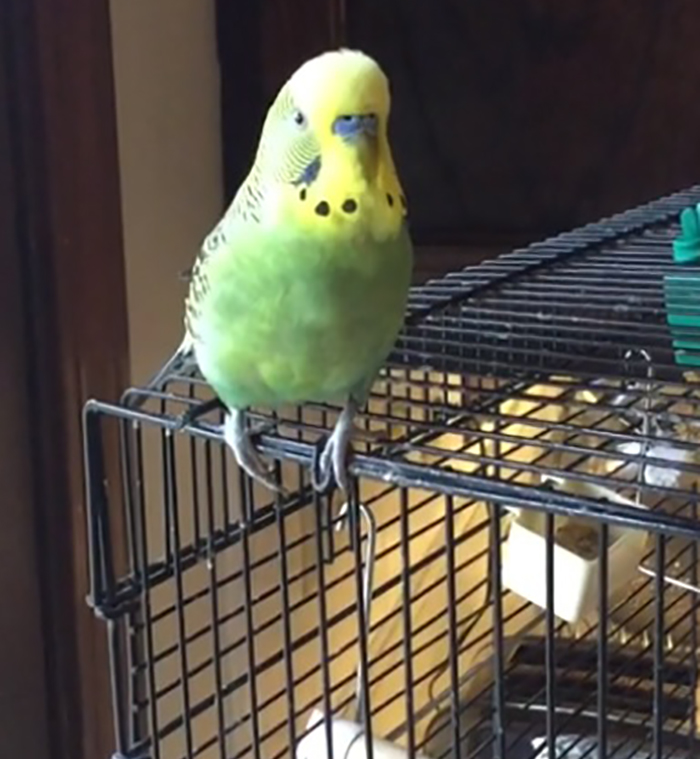
“My cat knows to come over for the last bits of my yogurt every night. She can tell from another room by the sound my spoon makes how much there is left, ie when it’s worth it to run on to me. Our dog never learned any commands except to come back from outside when you mimicked loud eating sounds.”
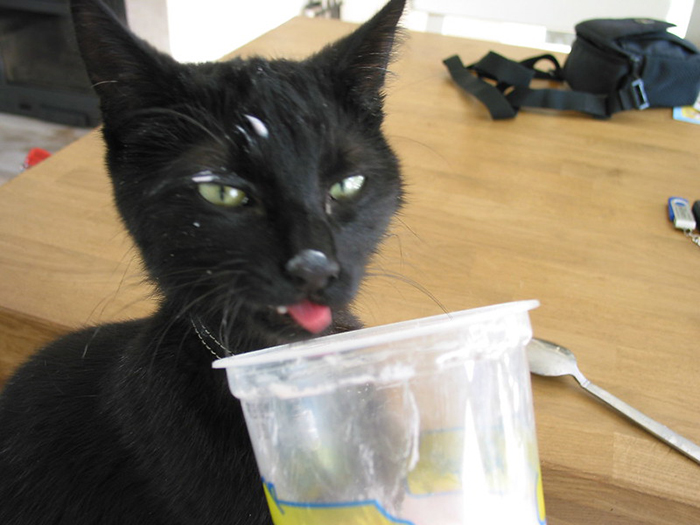
Regardless of the situation, keep in mind that patience is key when training animals
“I used to work from home which included talking on the phone a lot. My dog would always bark when I was starting to talk to someone so I’d give her a treat to shut up, this turned into her following me around and barking anytime I put my headset on.
I don’t work for that company anymore, but I kept the headset on a shelf. Now when she wants treats she’ll go over to it and bark at it and then look at me.”

“If he hears me on the phone with my sister, it’s automatically time for a walk. We usually chat when I take him out and he is now very aware of that.
Also, outside clothes and putting on makeup means I’m going out probably without him. If I take my backpack- I won’t be back until after work (he’s happy that hasn’t happened in a while).”
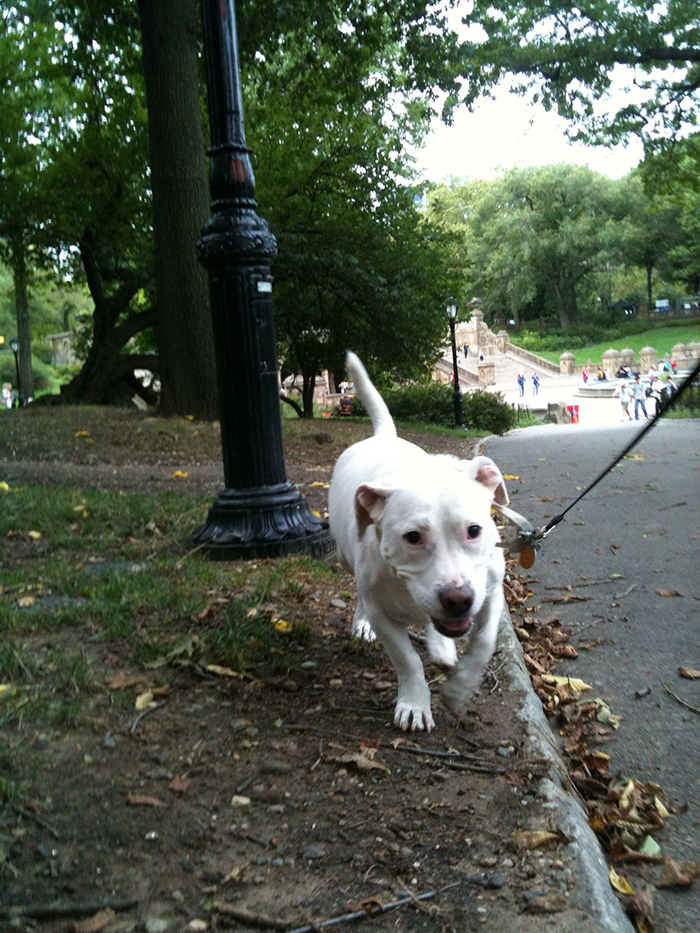
“Our dog puts himself to bed when we turn the Xbox off.”
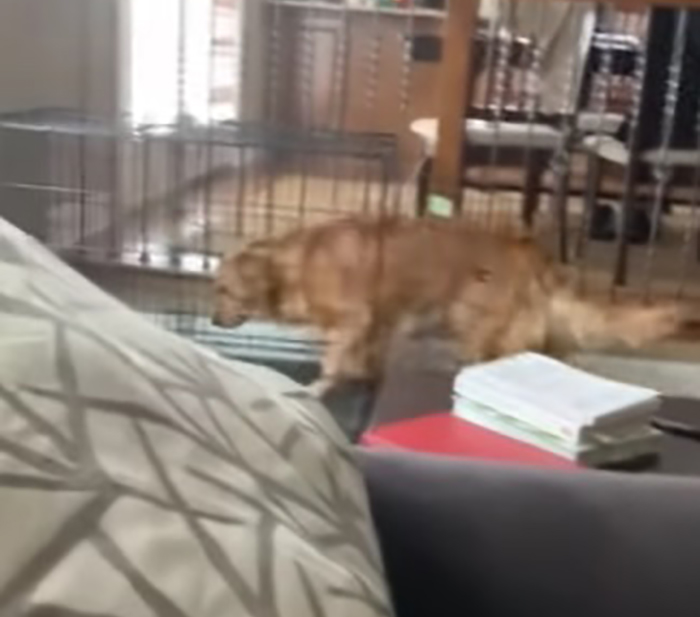
“Upon hearing the Windows 7 sonata log-off sound, she jumps up and starts running around the room since I always locked my computer before leaving. And when I’m leaving, that usually means she’s going to daycare (i.e. my Mom’s house).
It’s been 3 or so years since I switched to Windows 10, but just playing the sound on YouTube still gets a reaction out of her.”

And of course, don’t forget to have fun during the process!
“My pup knows ‘skooch’ means for him to get on his side of the bed. After my ex-husband left, ex’s side of the bed became dog’s side of the bed. Dog knows ‘off’ and would jump off the bed when I said ‘skooch,’ too, and then ask to be let back up on the bed. Eventually, he figured out that ‘skooch’ isn’t the same as ‘off’- he doesn’t have to get out of the bed, just out of my side of it.”
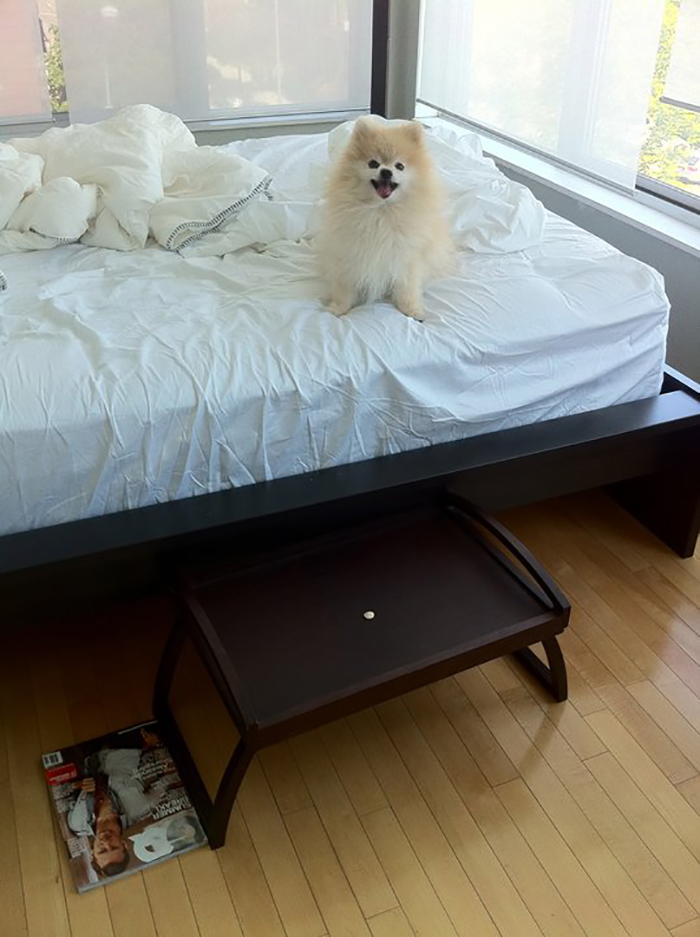
“I know somebody whose dog runs when he points his a** at it. Apparently, he blasted it once with a heinous fart and it remembers.”


